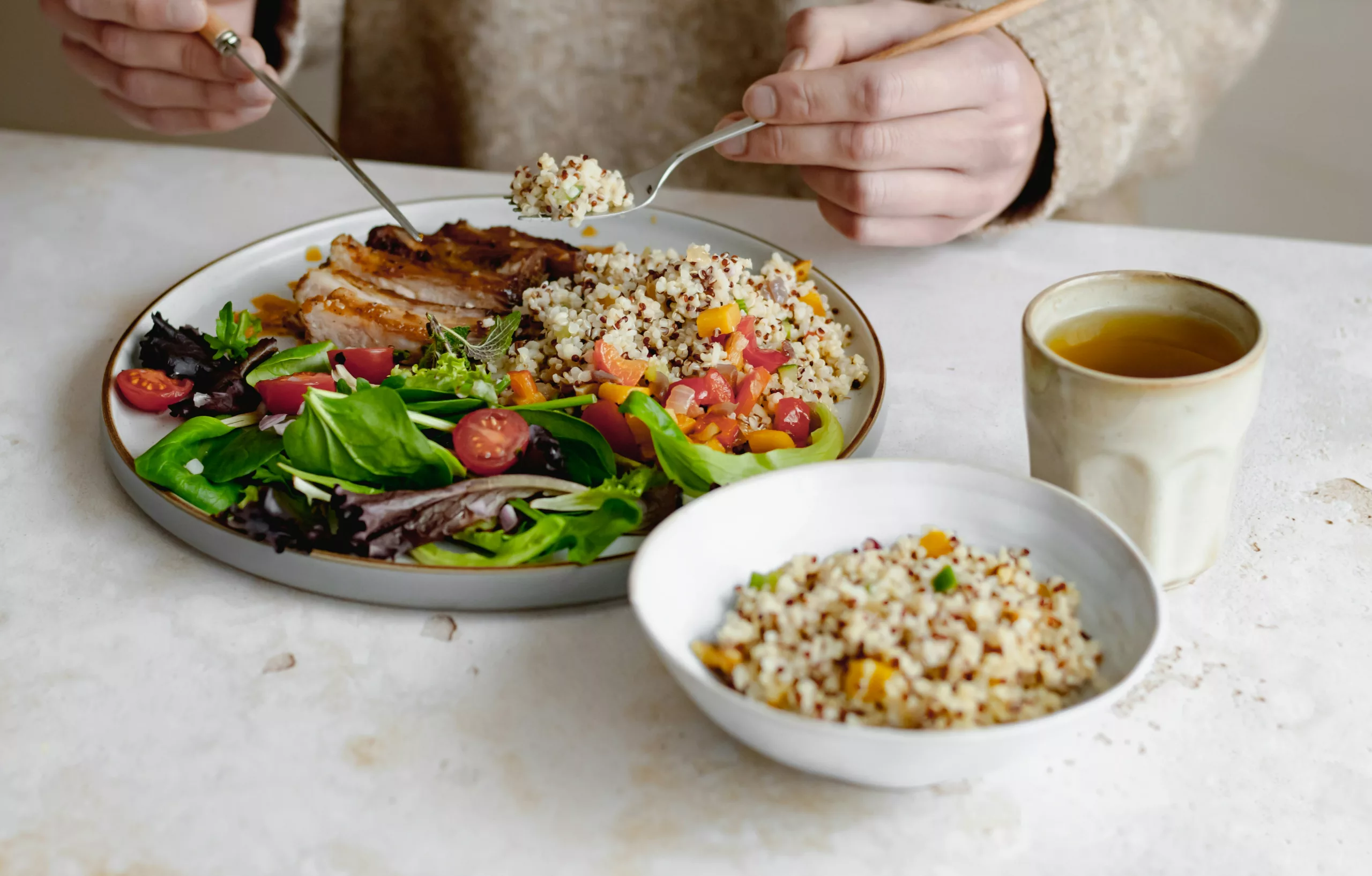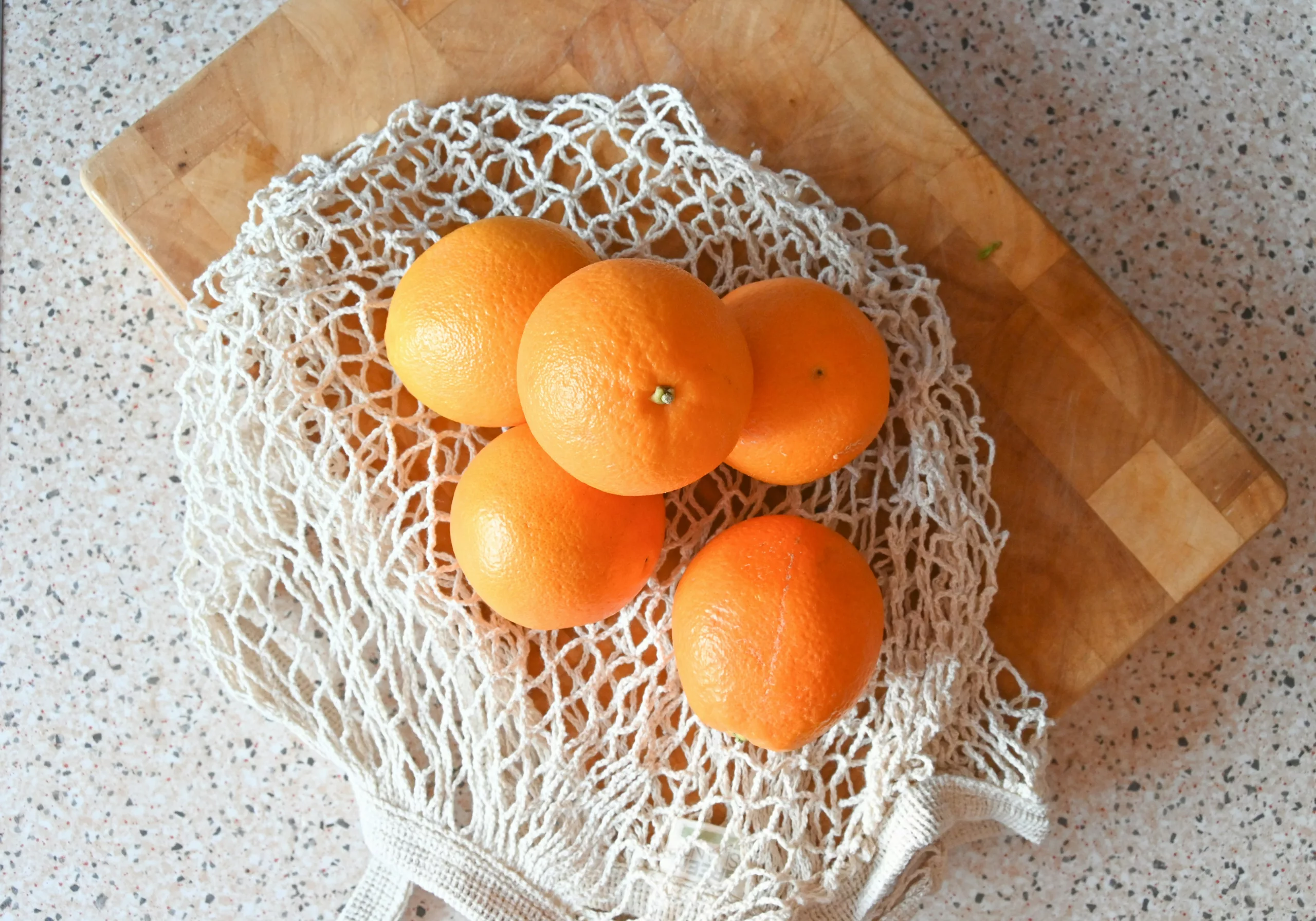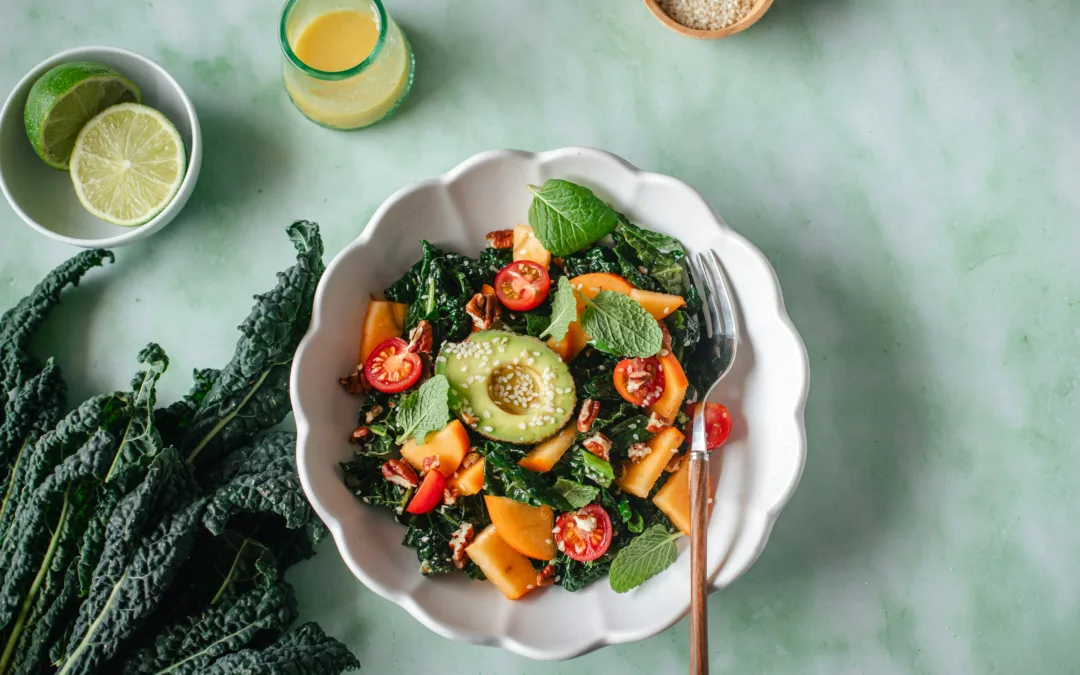Written by Kimberley Gittens, RD on behalf of Rachel McBryan, RD
Irritable bowel syndrome can impact your gut’s ability to absorb certain micronutrients and the body’s vitamin and mineral levels. As a result, people with IBS have a higher risk of developing certain micronutrient deficiencies. Multiple studies have found IBS to be associated with lower levels of certain micronutrients such as vitamin B12 and vitamin D. Below are some of the common vitamins impacted by IBS and ways to boost their intake in an IBS-friendly diet.
Important Vitamins for IBS
Vitamin B1
Vitamin B1, also known as thiamin, plays an important role in the movement of food through the GI tract. Early studies suggest a link between low thiamin levels and an increase in symptoms of IBS-C (constipation-predominant IBS). However, more research is needed to understand the relationship between vitamin B1 and IBS.
Vitamin B12
Vitamin B12 is a common micronutrient deficiency seen in IBS. A review of 26 studies found that people with IBS have a higher rate of vitamin B12 deficiency, than people without IBS. The review found that lower B12 levels are due to a lower amount of B12 in the diet and a reduced ability to absorb the vitamin in the GI tract.
In our diet, vitamin B12 is bound to proteins in food. Stomach acid separates food proteins from the food proteins. Vitamin B12 can then bind to another protein (called intrinsic factor) that allows it to be absorbed by the body. Low stomach acid levels caused by antacids, or IBS-related stress, can make it harder for your body to absorb vitamin B12.
As for B12 in your diet, there are a couple of B12-rich foods you can include in your IBS-friendly diet such as:
-
- Almond milk
- Rice milk
- Quinoa
- Fortified nutritional yeast
Your doctor can include vitamin B12 on blood tests to determine if you’re at risk for B12 deficiency.

Vitamin D
Adding a vitamin D supplement to your diet is almost never a bad idea. Most Canadians don’t get enough vitamin D and can benefit from vitamin D-rich foods, or supplements. Studies show that people with IBS have lower levels of vitamin D compared to dietary reference values, and compared to people without IBS.
Some IBS-friendly sources of vitamin D include:
-
- Salmon
- Tuna
- Sardines
- Egg yolk
- Plant-based milk
In some cases, food sources of vitamin D may not be enough to meet your needs. Studies have found that most Canadians (even without IBS) don’t meet their vitamin D needs throughout the winter months, and would benefit from additional supplements. Vitamin D is available in a variety of supplement formats including capsules and oils.
Check out this article to learn more about the importance of fat-soluble vitamins.
Not Sure How to Choose the Right Vitamin D Supplement?
Chat with one of our registered dietitians to find out!
Calcium
Many of the typical calcium-rich foods aren’t GI-friendly, which often means they are excluded when trying to reduce symptoms of IBS. However, there are a couple of IBS-friendly sources of calcium that can be included in your diet to help prevent your risk of deficiency, including:
-
- Tofu
- Tempeh
- Kale
- Chia seeds
- Bok choy
- Broccoli
- Oranges

Zinc
IBS may also increase your risk of zinc deficiency. Some studies have found that people with IBS-D have lower levels of zinc compared to people without IBS. However, like thiamin, more research can help clarify the relationship between IBS and zinc deficiency.
In the meantime, there are some zinc-rich foods that you can include in an IBS-friendly diet, such as:
-
- Pumpkin seeds
- Tempeh
- Wild rice
- Chickpeas
- Sunflower seeds
Role of the Low FODMAP Diet
The low FODMAP diet is an exclusion diet. Following the low FODMAP diet removes foods rich in fructose, oligo- and disaccharides from your diet. But that’s not all it removes. Exclusion diets, such as the low FODMAP diet, also remove many sources of vitamins and minerals. These diets are linked with a lower intakes of,
-
- Vitamin B1 (thiamin)
- Vitamin B2 (riboflavin)
- Calcium
- Iron
- Zinc
Following the low FODMAP diet for an extended time can increase your risk if developing a micronutrient deficiency.
Build Your Nutrient-Rich IBS-Friendly Diet
Working with Rachel and her team can help ensure your IBS-friendly diet is packed with all the essential vitamins and minerals you need. Book a free discovery call to get started!
References
Bek, S., Teo, Y. N., Tan, H., R Fan, K. H., & Ho Siah, K. T. (2022). Association between irritable bowel syndrome and micronutrients: A systematic review. Journal of Gastroenterology and Hepatology, 37(8), 1485-1497. https://doi.org/10.1111/jgh.15891
Hujoel, I. A. (2020). Nutritional status in irritable bowel syndrome: A North American population-based study. JGH Open, 4(4), 656-662. https://doi.org/10.1002/jgh3.12311
Roth, B., Larsson, E., & Ohlsson, B. (2022). Poor intake of vitamins and minerals is associated with symptoms among patients with irritable bowel syndrome. Journal of Gastroenterology and Hepatology, 37(7), 1253-1262. https://doi.org/10.1111/jgh.15830
Scholten, A., Vermeulen, E., Dhonukshe-Rutten, R. A., Verhagen, T., Visscher, A., Olivier, A., Timmer, L., & Witteman, B. J. (2018). Surplus vitamin B12 use does not reduce fatigue in patients with Irritable Bowel Syndrome or inflammatory bowel disease: A randomized double-blind placebo-controlled trial. Clinical Nutrition ESPEN, 23, 48-53. https://doi.org/10.1016/j.clnesp.2017.10.004
Shafiee, N. H., Razalli, N. H., Mokhtar, N. M., Tan, E., & Raja Ali, R. A. (2022). An evaluation of dietary adequacy among patients with constipation-predominant irritable bowel syndrome in Malaysia. Intestinal Research, 20(1), 124-133. https://doi.org/10.5217/ir.2020.00050
Kimberley is a Registered Dietitian, licensed in Ontario. She helps clients across Ontario control their blood sugars and reduce their risk of chronic conditions.


